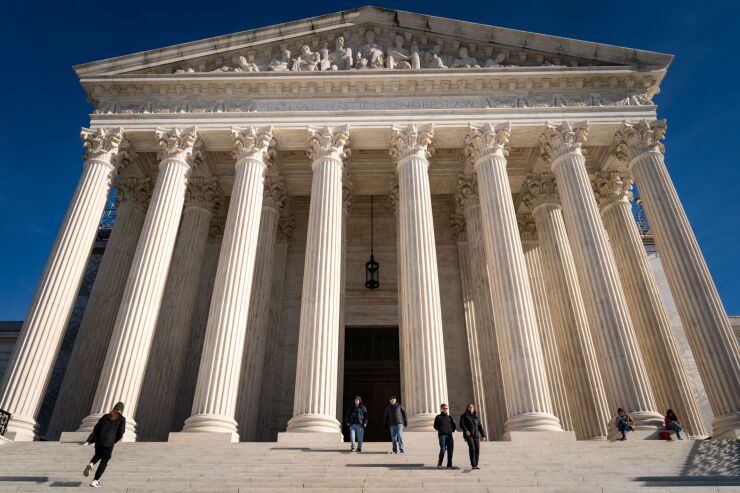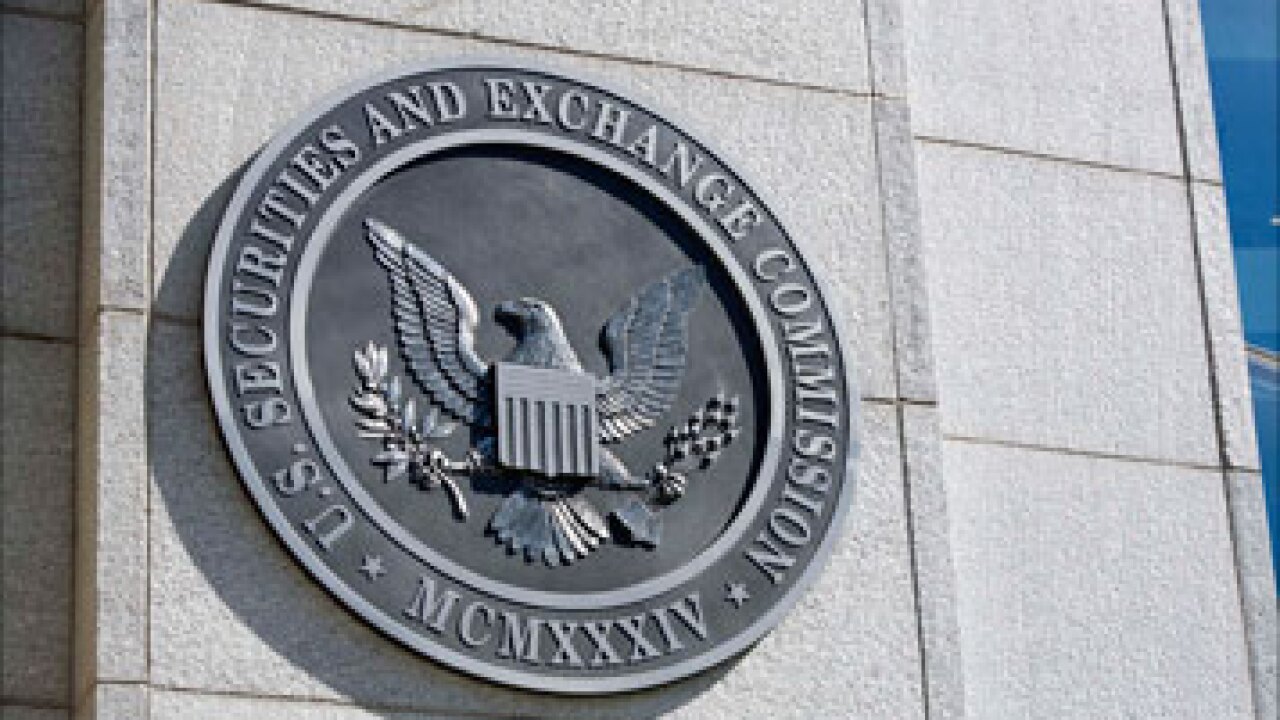The U.S. Supreme Court questioned a longstanding legal doctrine that gives federal agencies wide berth to interpret unclear laws as the justices heard two appeals that would constrain environmental, consumer-protection and financial regulators.
The court is considering overturning a watershed 1984 ruling that often requires judges to defer to agencies when they offer a reasonable interpretation of a statute. Democratic administrations have relied heavily on the ruling, using it to justify mandates on energy, the environment and the workplace.
Although it wasn't clear after three and a half hours of argument whether the court had the votes to overturn the ruling, the conservative majority generally signaled skepticism toward it.

Justice Brett Kavanaugh said the so-called Chevron doctrine, named after the oil company involved in the case, had fostered legal instability.
"Chevron itself ushers in shocks to the system every four or eight years when a new administration comes in, whether it's communications law or securities law or competition law or environmental law," he said. "It's just a massive change that is at war with reliance."
Another conservative, Justice Amy Coney Barrett, repeatedly voiced concern about a legal upheaval, alluding to the more than 15,000 court cases that have cited Chevron.
"Maybe nothing happens immediately to those cases, but isn't the door then open for litigants to come back?" she asked. "Isn't it inviting a flood of litigation, even if for the moment those holdings stay intact?"
The court could choose to limit the reach of the Chevron doctrine, rather than overturn it altogether.
Artificial intelligence
The case could be especially important for efforts to regulate new industries and issues, including cryptocurrency and artificial intelligence. Justice Elena Kagan said overturning Chevron risked forcing the courts to decide AI-related matters that would be better left to an expert agency.
Even if Congress passed a law regulating AI, "Congress knows that there are going to be gaps, because Congress can hardly see a week in the future with respect to this subject, let alone a year, or a decade in the future," Kagan said. "Does the Congress want this court to decide those questions — policy-laden questions — of artificial intelligence?"
Justice Ketanji Brown Jackson said she saw Chevron as "doing the very important work of helping courts stay away from policy making."
The cases involve a National Marine Fisheries Service requirement that some herring boats cover the cost of government-approved observers aboard their vessels. Fishing companies based in New England and New Jersey are challenging the estimated $710 daily fee, though it isn't in effect currently.
The challengers say that while federal law lets the Fisheries Service require monitors, Congress didn't authorize the agency to demand boat owners pay the cost.
Fishing law
In each case, a federal appeals court invoked Chevron and said the payment requirement was based on a reasonable interpretation of the 1976 Magnuson-Stevens Act, a law that governs the management of marine fisheries in federal waters.
The Biden administration is defending the requirement and urging the court to leave the Chevron doctrine intact. Solicitor General Elizabeth Prelogar said scrapping Chevron could breed more uncertainty, as courts nationwide weigh regulations interpreting ambiguous federal laws.
"There are 800 district court judges around the nation, and I think it's fair to say they will likely have different takes about what to do," she said.
Roman Martinez, the lawyer for the fishing companies in one of the cases, said the vacillating views of federal agencies pose their own risk.
"Chevron is really a reliance-destroying doctrine," he said. "If you're a person or regulated entity and you're trying to figure out what the law is, you should be able to rely on the best interpretation of the law and not have to check" for updates every few years.
Paul Clement, who represents the other group of challengers, told the justices that "there is no justification for giving the tie to the government."
The appeals also offer the court a narrower path for backing the fishing companies without directly overturning Chevron. The fishing companies say the court alternatively could rule that, because the 1976 law doesn't say anything about requiring the industry to pay for the cost of inspectors, Chevron doesn't even apply.
The challengers drew support from several of the court's conservatives, including Justice Neil Gorsuch, who said Chevron may be a disadvantage for individuals clashing with the federal government, including immigrants, veterans seeking benefits and applicants for Social Security disability.
These are people "who have no power to influence agencies, who will never capture them, and whose interests are not the sort of things on which people vote," Gorsuch said.
The court is scheduled to rule by late June. The cases are Relentless v. Department of Commerce,





